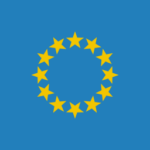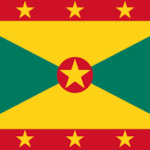Fees for registering Israel trademarks
Service Process
Trademark registration time
The current trademark regulations in Israel are mainly based on the Trademark Regulations promulgated on May 15, 1972, which were revised on August 7, 2017. The Patent Office of the Israeli Ministry of Justice is responsible for managing trademark affairs, as well as intellectual property matters such as patent and origin name protection. The official languages are Hebrew and Arabic. Trademark rights are obtained through registration or use. Trademark registration is not mandatory, but in order to better protect the trademark or renew it, it must be registered in accordance with the law. The Israeli trademark registration adopts the principle of "use first", and the long-term continuous use of unregistered trademarks and reaching a certain level of popularity will help to maintain trademark rights.
Israel is a party to international intellectual property treaties such as the TRIPS Agreement, Paris Convention, WIPO Convention, and Nice Agreement, and a member of the Madrid Protocol. Therefore, trademark protection can be handled through both "single country registration" and "Madrid International Registry".
Trademark Registration Process
At present, the Israeli government adopts the Nice Classification 11th edition of product and service descriptions and accepts applications for multiple categories in one form.
The elements that can be registered as trademarks in Israel include: text, name, graphics, numbers, slogan, color combination, three-dimensional logo, sound, smell, etc.
If the applicant does not reside in Israel, they must entrust a specialized agent in their home country to handle the matter. The basic materials required for trademark application are:
1. Trademark design;
2. Specific product items;
3. Name and address of the applicant;
4. Power of attorney;
5.If priority is declared, priority proof documents and their translations must be provided.
The main process for applying for registration of an Israeli trademark is: application, acceptance, examination, announcement, approval, and issuance of a certificate.
After the application is submitted, the official first conducts a formal review, mainly examining whether the application requirements and classification information comply with regulations. Generally, it takes about one month to complete the acceptance. After acceptance, substantive examination of the trademark will be conducted, which generally takes about 3-5 months (accelerated examination can be applied for), including examination of the distinctiveness of the trademark, whether it violates the prohibition and prohibition clauses, and whether it forms a substantial relationship with the prior trademark. If the examination is passed, it will be announced; If the review fails, a rejection notice will be issued and the applicant will be required to respond within the time limit specified in the rejection notice.
The objection period is within 3 months from the date of announcement. Any interested party or prior right holder may raise objections, and the main reasons for raising objections are:
1. Conflict with prior trademarks, such as owning a prior registered trademark;
2. The trademark lacks distinctiveness;
3. The trademark has adverse effects;
4. Malicious registration;
5. Conflict with other prior rights, such as trade name rights, design rights, copyrights, personal names, etc.
If there are no objections or objections are not valid during the announcement period, registration can be approved and a registration certificate can be issued after the objection period ends. In a smooth situation, trademark registration in Israel takes about one year; If there is any rejection or objection encountered during the process, the time will be extended.
Due to the principle of "prior use" adopted by the country, when raising objections, the prior use can be used to counter the later application.
Trademark registration materials
The Israeli trademark is valid for 10 years after registration, starting from the date of application; Renewal can be processed within 3 months before the expiration date, with a grace period of 6 months; The renewal is valid for 10 years.
Start Your Trademark Business
Start Registration

do not understand? Contact us

do not understand? Contact us

do not understand? Contact us

do not understand? Contact us


 Israel
Israel